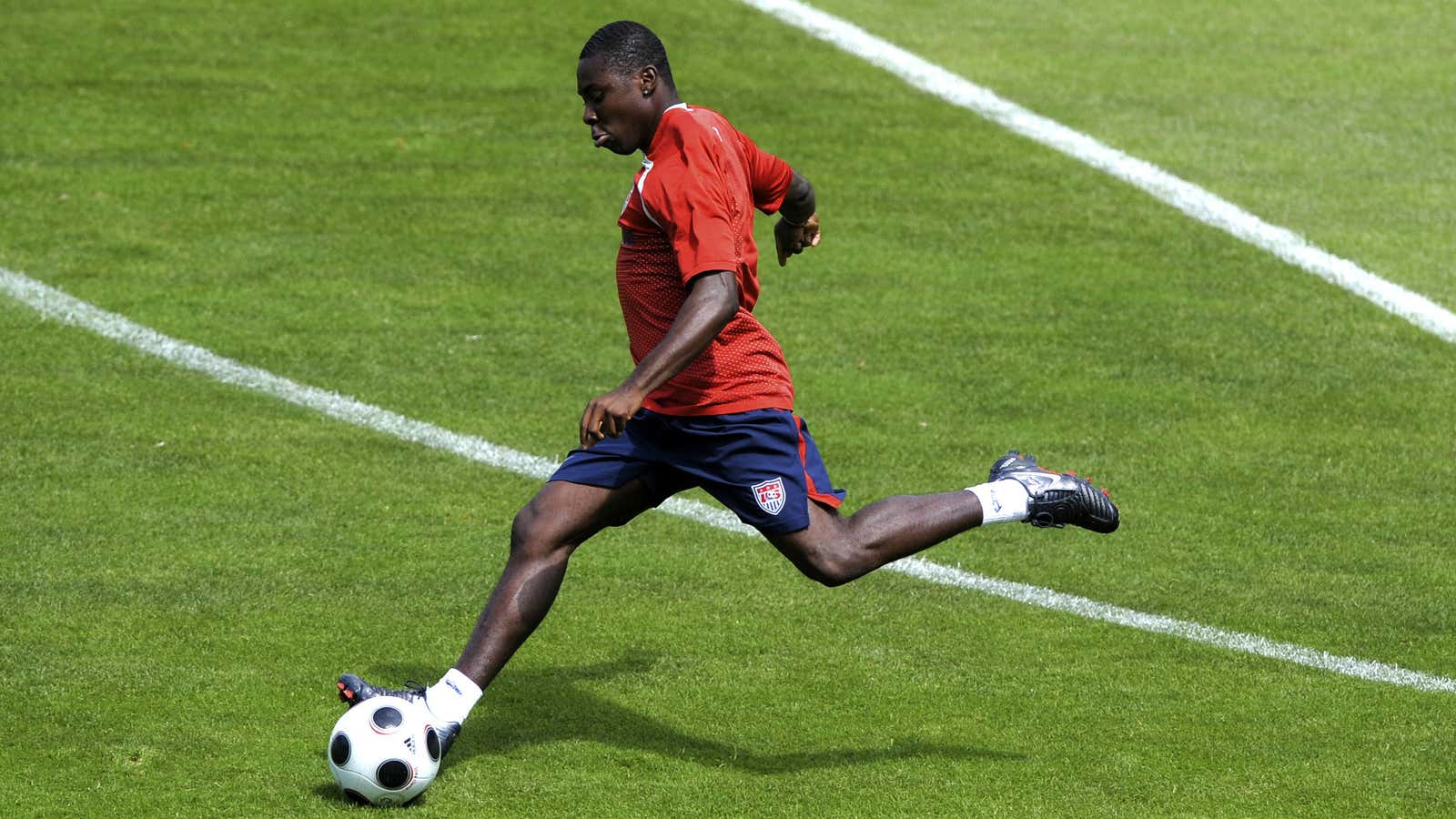After more than a decade playing for 13 different teams, spanning three continents, Freddy Adu has signed for second-tier North American Soccer League (NASL) soccer team Tampa Bay Rowdies. Adu is washed up at the age of 26.
When Adu first burst into the scene in 2003, as a 14-year old, signing what was at the time the most expensive professional contract in Major League soccer, he was dubbed the future of US soccer. A “prodigy,” some were calling him. The next Pele, others said.
The Brazilian legend himself compared Adu to a certain Austrian musical genius. ”Mozart started when he was five years old,” Pele said. “If you are good, you are good. God gave Freddy the gift to play soccer.”
Then there was the matter of the $1 million contract from Nike that led ESPN to say that Adu had greater commercial potential than a certain LeBron James. All this for a child! At one point in his teens, he was earning $3 million a year, with only $500,000 of that coming from soccer.
But on the pitch, he never put his skills together, beginning in MLS and then elsewhere. A stint in Europe—with Benfica, then Monaco—ended in failure. He came back to the US, playing for Philadelphia. He went to Bahia, in Brazil. Adu’s last club was Kufu-98, in Finland.
Is his failure so far because he was not that talented to begin with? Or was the pressure too much for him? It could also be down to commercializing a young man not yet prepared for the spotlight. Here is Adu, whose family is originally from Ghana, reflecting on what might have happened:
My family was really poor. My mum was working two or three jobs to take care of my brother and me. So if Nike come to you and say they want to give you a million-dollar contract and the MLS wants to make you the highest-paid player at 14, you can’t say no. You just can’t. I said yes to everything that was asked of me and ended up doing a lot of appearances, a lot of promotion, a lot of interviews, and it took away from the football on the field. People saw me more as a marketing tool.
He is back in the US now, reunited with his coach from the US under-20 team Thomas Rongen, who is now at Tampa. At 26, Adu is still young enough to become the player that the world hoped he would be.
“I’m not saying I’m the only one, but I think I can resurrect his career, and I mean that sincerely,” Rongen says. “Freddy knows that, too.”
